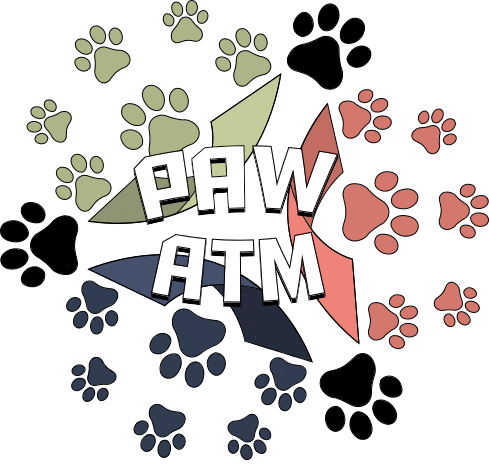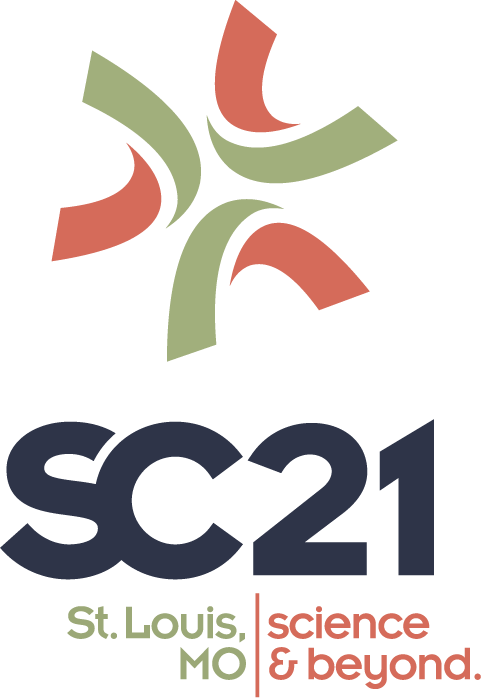Welcome to the PAW-ATM Workshop.
- Proceedings
- Program
- Important dates
- Summary
- Scope and Aims
- Topics
- Submissions
- Organization
- Previous Instances of PAW-ATM
Program
- 8:30 - 8:33 Karla Morris, Rosa M. Badia, Michael Ferguson, Bill Long, and Sean Treichler
Introduction
(Presentation)
- 8:33 - 9:20 Invited Speaker: Modesto Orozco - Institute for Research in Biomedicine (IRB) Barcelona
Towards an Efficient Use of Exa-Scale High-Performance Computing
(Abstract)
- 9:20 - 10:00 Session 1
- 9:20 - 9:40 Daniel Waters, Colin A. MacLean, Dan Bonachea, and Paul H. Hargrove
Demonstrating UPC++/Kokkos Interoperability in a Heat Conduction Simulation
(Presentation,
Extended Abstract)
- 9:40 - 10:00 Hsing-Yin Chang, Elliott Slaughter, Seema Mirchandaneye, Jeffrey Donatelli, and Chun Hong Yoon
Scaling and Acceleration of Three-dimensional Structure Determination for Single-Particle Imaging Experiments with SpiniFEL
(Presentation,
Extended Abstract)
- 10:00 - 10:30 Break (30 min)
- 10:30 - 11:30 Session 2
- 10:30 - 10:50 Thomas B. Rolinger, Joseph Craft, Christopher D. Krieger and Alan Sussman
Towards High Productivity and Performance for Irregular Applications in Chapel
(Presentation)
- 10:50 - 11:10 Thierry Gautier, João V. F. Lima
Evaluation of two topology-aware heuristics on level-3 BLAS library for multi-GPU platforms
(Presentation)
- 11:10 - 11:30 Amir Kamil, and Dan Bonachea
Optimization of Asynchronous Communication Operations through Eager Notifications
(Presentation)
- 11:30 - 12:00 Panel Discussion
Panel Chair: Swaroop S. Pophale - Oak Ridge National Laboratory
(Panel Slides)
Panelists:
- Barbara Chapman - Hewlett Packard Enterprise and Stony Brook University
(Intro Slides)
- Alan Edelman - Massachusetts Institute of Technology
- Eric Laurendeau - Polytechnique Montreal
(Intro Slides)
- Modesto Orozco - Institute for Research in Biomedicine (IRB) Barcelona
- Nikhil Padmanabhan - Yale University
(Intro Slides)
Introduction
Towards an Efficient Use of Exa-Scale High-Performance Computing
- 9:20 - 9:40 Daniel Waters, Colin A. MacLean, Dan Bonachea, and Paul H. Hargrove
Demonstrating UPC++/Kokkos Interoperability in a Heat Conduction Simulation
(Presentation,
Extended Abstract)
- 9:40 - 10:00 Hsing-Yin Chang, Elliott Slaughter, Seema Mirchandaneye, Jeffrey Donatelli, and Chun Hong Yoon
Scaling and Acceleration of Three-dimensional Structure Determination for Single-Particle Imaging Experiments with SpiniFEL
(Presentation,
Extended Abstract)
- 10:30 - 10:50 Thomas B. Rolinger, Joseph Craft, Christopher D. Krieger and Alan Sussman
Towards High Productivity and Performance for Irregular Applications in Chapel
(Presentation)
- 10:50 - 11:10 Thierry Gautier, João V. F. Lima
Evaluation of two topology-aware heuristics on level-3 BLAS library for multi-GPU platforms
(Presentation)
- 11:10 - 11:30 Amir Kamil, and Dan Bonachea
Optimization of Asynchronous Communication Operations through Eager Notifications
(Presentation)
(Panel Slides)
Panelists:
- Barbara Chapman - Hewlett Packard Enterprise and Stony Brook University (Intro Slides)
- Alan Edelman - Massachusetts Institute of Technology
- Eric Laurendeau - Polytechnique Montreal (Intro Slides)
- Modesto Orozco - Institute for Research in Biomedicine (IRB) Barcelona
- Nikhil Padmanabhan - Yale University (Intro Slides)
Important dates
- Submissions deadline:
July 30, 2021August 11, 2021 - Manuscripts review period: August 12-20, 2021
- Rebuttal submission: September 3, 2021
- Building consensus: September 4-10, 2021
- Notification to authors: September 13, 2021
- Final program: September 15, 2021
- Camera Ready: October 1, 2021
- Workshop date: November 19, 2021
Summary
Architectural hierarchy and heterogeneity makes programming supercomputers challenging. In practice, HPC applications tend to be written using a mix of programming models—like C++, MPI, CUDA, and/or OpenMP—each of which is becoming more complex over time. This negatively impacts the costs of developing, maintaining, and porting HPC applications.
Meanwhile, alternative HPC programming models strive to improve things by raising the level of abstraction; incorporating modern features; and/or leveraging the respective strengths of programmers, compilers, and runtimes. These alternatives take the form of new languages (e.g., Chapel, Regent, XcalableMP), frameworks for large-scale data science (e.g., Arkouda, Dask, Spark), or extensions to existing languages (e.g., Charm++, COMPSs, Fortran, Legion, UPC++).
PAW-ATM is a forum for discussing HPC applications written in alternatives to MPI+X. Its goal is to bring together application experts and proponents of high-level languages to present concrete example uses of such alternatives, describing their benefits and challenges.
Scope and Aims
The PAW-ATM workshop aims to serve as a forum for exhibiting parallel applications developed using high-level parallel programming models that serve as alternatives to MPI+X-based programming. We encourage the submission of papers and talks from the community detailing practical distributed-memory applications written using alternatives to MPI+X, including characterizations of scalability and performance, expressiveness and programmability, as well as any downsides or areas for improvement in such models. In doing so, our hope is to create a setting in which application authors, language designers, and architects can present and discuss the state of the art in alternative scalable programming models while also wrestling with how to increase their effectiveness and adoption. Beyond well-established HPC scientific simulations, we also encourage submissions exploring artificial intelligence, big data analytics, machine learning, and other emerging application areas.
Topics
Topics of interest include, but are not limited to:
- Novel application development using high-level parallel programming languages and frameworks.
- Examples that demonstrate performance, compiler optimization, error checking, and reduced software complexity.
- Applications from artificial intelligence, data analytics, bioinformatics, and other novel areas.
- Performance evaluation of applications developed using alternatives to MPI+X and comparisons to standard programming models.
- Novel algorithms enabled by high-level parallel abstractions.
- Experience with the use of new compilers and runtime environments.
- Libraries using or supporting alternatives to MPI+X.
- Benefits of hardware abstraction and data locality on algorithm implementation.
Papers that include description of applications that demonstrate the use of alternative programming models will be given higher priority.
Submissions
Submissions are solicited in two categories:
Full-length papers will be published in the workshop proceedings (+). Submitted papers must describe original work that has not appeared in, nor is under consideration for, another conference or journal. Papers shall be eight (8) pages minimum and not exceed ten (10) including text, appendices, and figures. Appendix pages related to the reproducibility initiative dependencies, namely the Artifact Description (AD) and Artifact Evaluation (AE), are not included in the page count.
+ The publisher of the proceedings will be TCHPC pending final acceptance of workshop proceedings.
Extended abstracts will be evaluated separately and will not be included in the published proceedings; they are intended to propose timely communications of novel work that will be formally submitted elsewhere at a later stage, and/or of already published work that would be of interest to the PAW-ATM audience in terms of topic and timeliness. Extended abstracts shall not exceed four (4) pages
When deciding between submissions with similar merit, submissions whose focus relates more directly to the key themes of the workshop (application studies, computing at scale, high-level alternatives to MPI+X) will be given priority over those that don't. In addition, full-length paper submissions will be given preference over extended abstracts.
Submissions shall be submitted through Linklings using 10pt font in the IEEE format.PAW-ATM follows the reproducibility initiative of SC21. AD/AE sample form is available.
Organization
Workshop Chair
- Karla Morris - Sandia National Laboratories
Organizing Committee
- Rosa M. Badia - Barcelona Supercomputing Center
- Michael Ferguson - Hewlett Packard Enterprise
Program Committee Chairs
- Bill Long - Hewlett Packard Enterprise
- Sean Treichler - NVIDIA
Program Committee
- Vicenç Bertran - Barcelona Supercomputing Center
- Dan Bonachea - Lawrence Berkeley National Laboratory
- Peter Braam - University of Oxford
- Harold Castro - Los Andes University (Colombia)
- Bradford L. Chamberlain - Hewlett Packard Enterprise
- Valentin Churavy - Massachusetts Institute of Technology
- John Feo - Pacific Northwest National Laboratory
- Michael Ferguson - Hewlett Packard Enterprise
- Salvatore Filippone - University of Rome Tor Vergata
- Fernanda Foertter - The BioTeam, Inc.
- Max Grossman - Georgia Institute of Technology
- Hideto Iwashita - HPFPC
- Daniel S. Katz - University of Illinois, Urbana-Champaign
- Wonchan Lee - NVIDIA
- Daniele Lezzi - Barcelona Supercomputing Center
- Bill Long - Hewlett Packard Enterprise
- Karla Morris - Sandia National Laboratories
- Irene Moulitsas - Cranfield University
- Mitsuhisa Sato - RIKEN Advanced Institute for Computational Science
- Sean Treichler - NVIDIA
Advisory Committee
- Bradford L. Chamberlain - Hewlett Packard Enterprise
- Damian W. I. Rouson - Sourcery Institute
- Katherine A. Yelick - Lawrence Berkeley National Laboratory
Previous Instances of PAW-ATM
- PAW-ATM2021: Parallel Applications Workshop, Alternatives To MPI+X
- PAW-ATM2020: Parallel Applications Workshop, Alternatives To MPI+X
- PAW-ATM2019: Parallel Applications Workshop, Alternatives To MPI+X
- PAW-ATM2018: Parallel Applications Workshop, Alternatives To MPI
- PAW2017: PGAS Applications Workshop
- PAW2016: PGAS Applications Workshop


